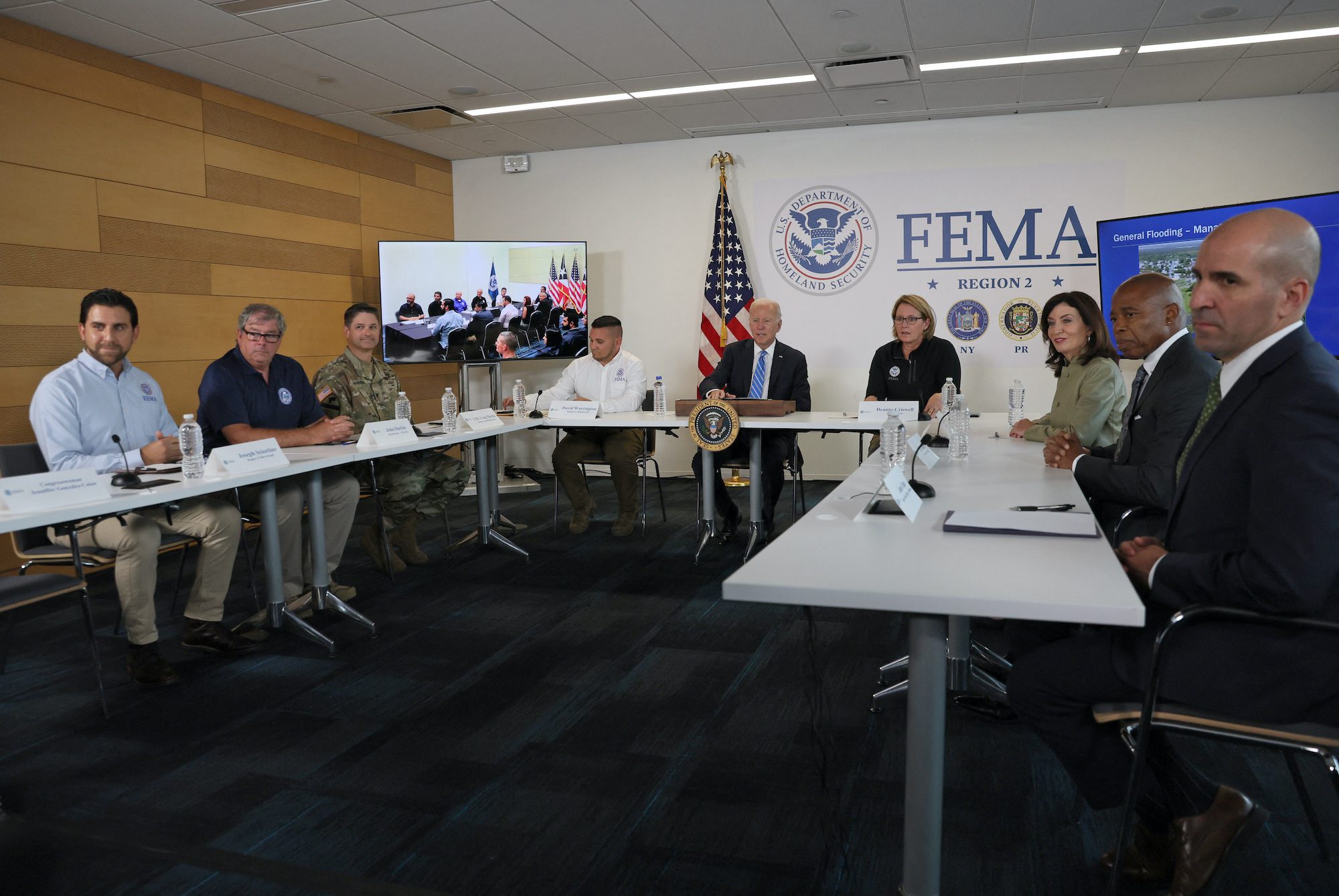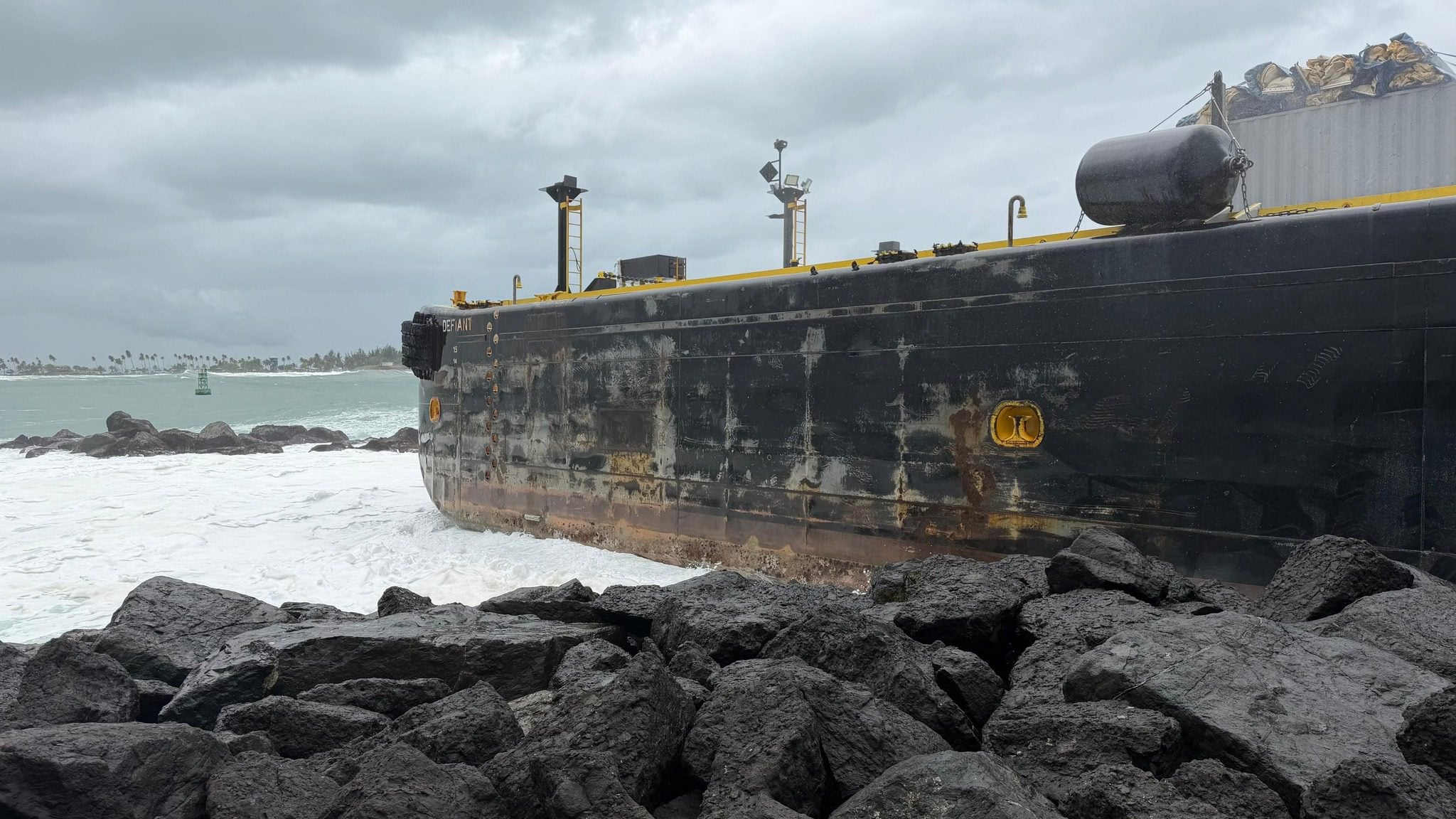With Hurricane Fiona’s path of destruction in Puerto Rico, there are growing calls to waive Jones Act requirements that would allow foreign-flagged ships to deliver supplies between the U.S. mainland and the U.S. Commonwealth.
Today, Puerto Rican Governor Pedro Pierluisi said on Twitter that he has called on Secretary Mayorkas to grant a Jones Act waiver for a ship loaded with diesel sitting off Puerto Rico’s south coast.
The ship, identified as the Marshall Islands-flagged GH Parks, departed Texas City, Texas on September 15 and is currently sitting off the coast of Peñuelas, Puerto Rico. The ship is reportedly chartered by BP and was confirmed by PR Ports Authority Executive Director Joel Pizá Batiz, who wrote on Twitter that an official waiver request has been submitted for the cargo and urged that it should be granted.
Already, U.S. lawmakers like Senator Mike Lee of Utah are piling on after CBS News correspondent David Begnaud drew attention to the vessel on Twitter.
This follows last Friday, when a group eight U.S. Congressmen, led by Rep. Nydia Velazquez of New York, sent a letter to Department of Homeland Security Secretary Alejandro Mayorkas asking for a one-year waiver of the Jones Act as it applies to Puerto Rico.
Hurricane Fiona made landfall in southwestern Puerto Rico on Sunday, September 18, as a Category 1 hurricane, dumping as much as 30 inches of rain in some areas and knocking out power to entire island. Power is being slowly restored, but as of this morning an estimated 746,000 homes and businesses were still without power, according to some reports.
Officials have so far indicated that, similar to Hurricane Maria in 2017, supply problems in Puerto Rico are more rooted in inland distribution than the ocean shipping supply chain.
“Diesel is available on the island. Fuel suppliers are receiving supply. There is just high demand and delays in distribution and resupply,” FEMA said in its National Business Emergency Operations call earlier today.
CBS’ David Begnaud followed up on his reporting with the following tweet:
In a situation update published Monday by the U.S. Department of Energy, the agency stated: “Longer lines at retail gas stations have been reported; however, currently there are no reports of liquid fuel supply shortages on the island. As power restoration continues, demand for gasoline and ultra-low sulfur diesel (USLD) remains high as customers continue using backup generators.”
Jones Act Waivers
The Jones Act requires that goods transported between U.S. ports, such as the U.S. mainland and Puerto Rico, are shipped on vessels that are U.S. built, owned, operated, and crewed. Advocates of the Jones Act say the law ensures reliable shipping services to the U.S. Commonwealth, among other benefits to U.S. national security. Opponents of the law, however, say it unnecessarily increases shipping costs by restricting free trade, although these claims are difficult to quantify considering the multitude of factors that go into determining freight rates.
Discretionary waivers of the Jones Act (i.e. submitted by non-DOD entities) are often submitted in response to natural disasters, such as hurricanes, when oil, fuel and other relief supplies are severely disrupted. While waivers are granted in some cases, waivers are typically few and far between and can only be issued in the “interests of national defense”.
Jones Act waiver requests are made to the U.S. Customs and Border Protection, an agency within the Department of Homeland Security, and must include a range of information including a “statement that the requester does not have under charter any coastwise-qualified vessel that is: capable of transporting the type of merchandise at issue, and whether or not it is laden with the type of cargo described in the request” and “why granting the waiver for the proposed transportation of cargo would be necessary in the interest of national defense.”
The “interests of national defense” piece is critical to any waiver. Law firm Holland & Knight describes a little more about the waiver request process in a blog post:
When DHS receives a discretionary waiver request, it undertakes an assessment of whether there is sufficient “interest of national defense” to proceed. In so doing, DHS consults MARAD to assess the capability and availability of qualified U.S.-flag vessels to meet the national defense requirements. MARAD must make a determination that insufficient qualified U.S.-flag vessels are available to meet the requisite transportation needs before the Secretary of DHS may evaluate whether the proposed transportation is “in the interest of national defense.” Once MARAD makes its determination, the Secretary of DHS makes the final decision on the Jones Act waiver request.
“While American Maritime has been delivering consistently, and offloading fuel even as this statement is made, foreign carriers are actively looking to profit from this disaster at the expense of the Puerto Rican people; it is bad precedent, it undermines U.S. law, and puts foreign shippers ahead of Americans,” said Ku’uhaku Park, President of the American Maritime Partnership, which lobbies on behalf of U.S. domestic maritime interests. “There is no indication that American shipping capacity is insufficient to meet demand, and, therefore, no justification for a waiver of the Jones Act.”
After Hurricane Maria slammed Puerto Rico in 2017, the Trump Administration, facing mounting criticism over the U.S. government’s response, issued a temporary 10-day Jones Act waiver a full eight days after the storm made landfall, defending the act by arguing that supply shortages were related to distribution bottlenecks on the island rather than a lack of Jones Act compliant vessels. An extension of the waiver after the 10-day period was not granted depsite pressure from lawmakers and members of the public.
Despite some lawmaker attacks and occassionial calls for a repeal or scaling back of the law, the Jones Act for the most part has strong support within the U.S. Congress. In the wake of the Hurricane Maria and Irma, congressional leaders from both sides of the aisle defended the Jones Act’s impact on hurricane relief efforts in Puerto Rico during a House Subcommittee on Transportation and Infrastructure hearing.
In a LinkedIn post, Sam Norton, President and CEO of Overseas Shipholding Group, which operates tankers and articulated tug barge (ATBs) in the Jones Act market, compared the “chorus” for Jones Act waivers as hurricane activity picks up to being as reliable as “swallows arriving in the spring.”
“A review of hurricane induced disaster situations over recent years reveals that maritime supply chains into affected ports are rarely a problem. Rather, distribution networks downstream of gateway ports are the principal bottleneck to widespread and effective relief supply,” Norton writes.
He also argues that Jones Act waivers should be resisted in “in almost all cases.”
“Waivers rarely provide either economic benefit or enhanced emergency response to victims in need. More often than not, waiver requests are a form of disaster arbitrage – that is opportunistic traders looking to game the system to avail themselves of outsized profits by obtaining exemptions from rules upon which the regular transportation ecosystem is built,” his post states.
Editorial Standards · Corrections · About gCaptain

 Join The Club
Join The Club











